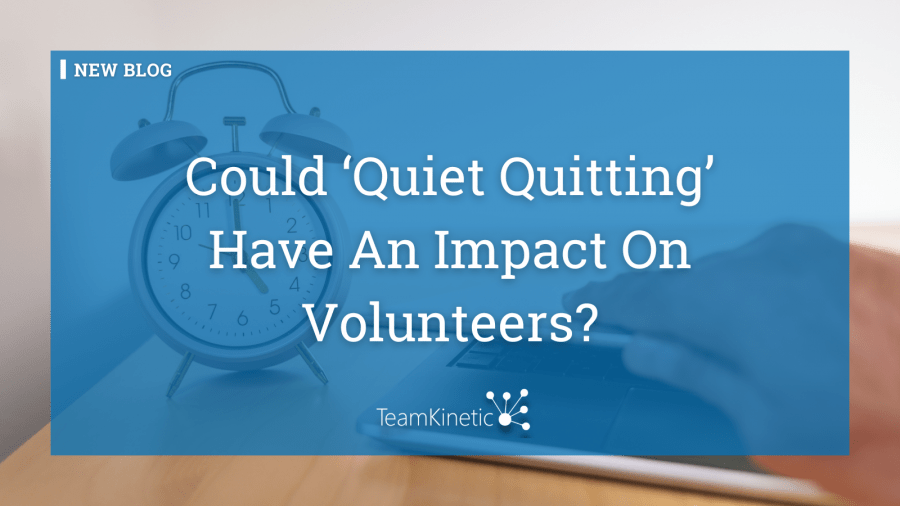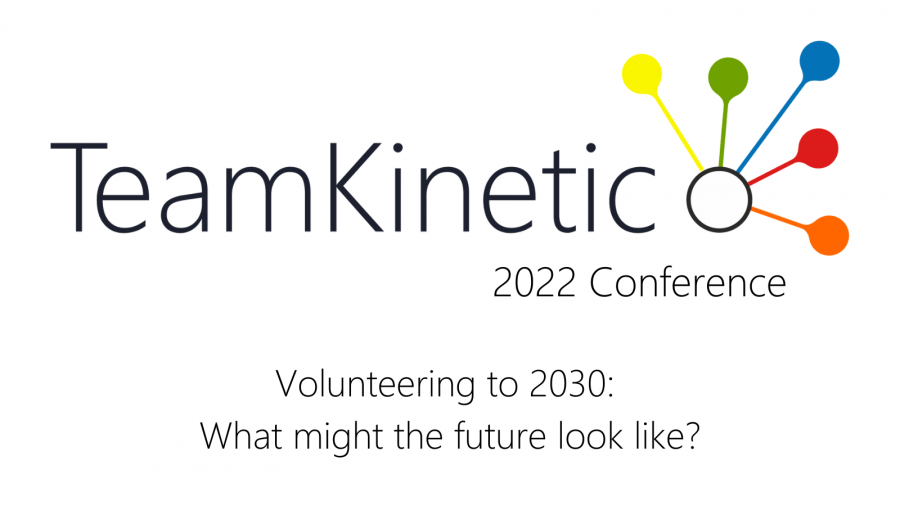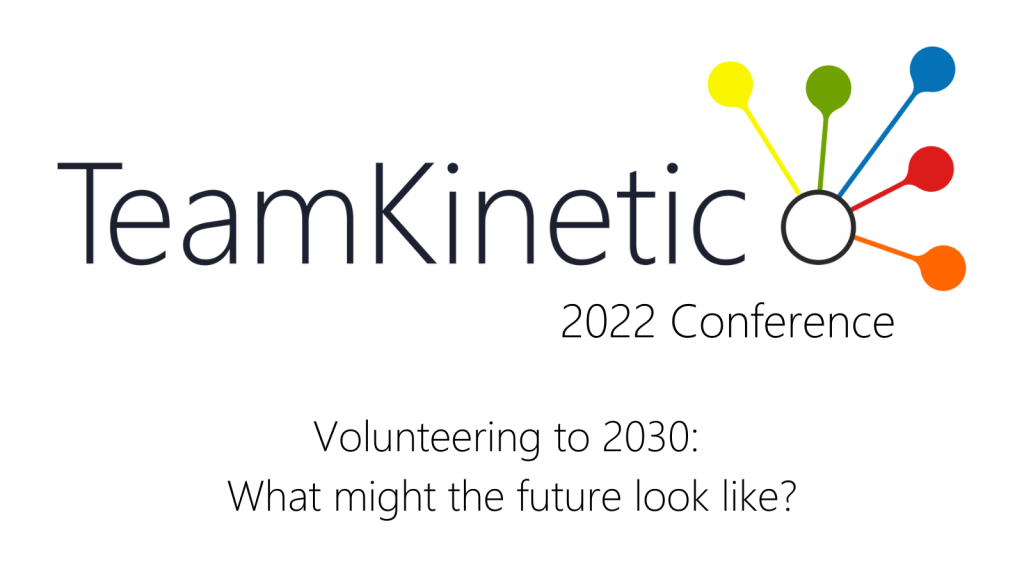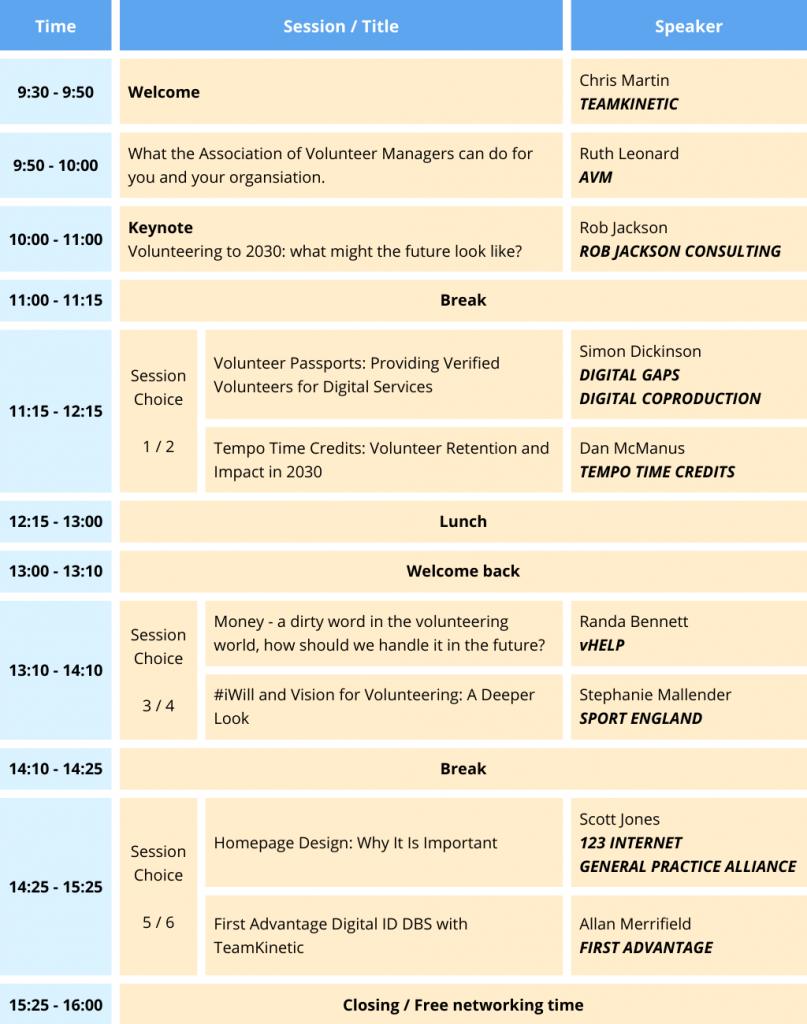What Is ‘Quiet Quitting’?
Since the pandemic, a current trend for workers at the moment is ‘quiet quitting’. Quiet quitting is essentially workers doing the bare minimum, they are doing just enough in the office to keep up and get the work done but aren’t going above and beyond what they had previously been doing. “Since the pandemic, people’s relationship with work has been studied in many ways, and the literature typically, across the professions, would argue that, yes, people’s way of relating to their work has changed”. So will quiet quitting also have an impact on volunteers?

The Impact Quiet Quitting Might Have On Volunteers
The ‘quiet quitting’ trend could have an impact on volunteerism. Volunteers may do just enough to complete their shifts and keep volunteer managers happy to not get dismissed. It is now said “volunteers that were at one time on fire and passionate about your mission, donating hours of their week, and stepping into leadership roles, are now stepping aside and letting the paid staff take back the work”. Typically volunteering involves extra work outside of your shift, helping out before and after and socialising with others. The quiet quitting trend could lead to volunteers not putting in the extra effort or going above and beyond. Instead, volunteers might complete their shifts and leave the rest of the work to others.
This trend could all depend on people’s motivations for volunteering in the first place. If they are volunteering to gain new skills or experience, then they might not put in the extra effort to make new friends or stay after their shift to help out.
Quiet quitting could also stop people from wanting to volunteer all together. People who are regular volunteers but are ‘quiet quitting’ at work may also lack the motivation to complete any volunteer work too. Being exhausted from the volume of work and lack of work-life balance hit many people during the pandemic. If people are remotely working and doing their job but nothing more they may not be bothered to leave the house after a day of remote work to go and volunteer in person.

How To Prevent Your Volunteers From Quiet Quitting
If you think you might have a quiet quitter volunteer on your team or that it could affect your volunteer team in future then it could be because there isn’t a strong relationship between you and your volunteers. It’s important to create and maintain good relationships with volunteers, this way they will want to go above and beyond and spend extra time helping out as they are surrounded by people they trust and feel appreciated by. A friendly working community can also be built, which allows volunteers to be a part of a comfortable and supportive environment. To build this relationship you could have regular 1-on-1s with your volunteers, this way you can find out their interests and offer them support.
Due to the cost of living crisis, volunteers may be cautious of having expenses reimbursed quickly so they aren’t out of pocket for an extended period of time. If the reimbursement does take more than a couple of weeks then volunteers may be more reluctant to put as much effort into their shifts or want to stop volunteering all together. However, there are quick solutions that pay off expenses such as vHelp which can enable you to pay off expenses within 24 hours.
Key Takeaways…
People are becoming exhausted with work and may be feeling burnt out with a lack of motivation due to the pandemic, therefore this has maybe led to people wanting to ‘quiet quit’. This trend has the potential to affect volunteers too but volunteer managers can try their best to avoid this happening to their team. Ensure you are building strong relationships with your volunteers, and show your appreciation for them and the difference they are making to your organisation.
You can find TeamKinetic on social media and listen to our podcast:






























